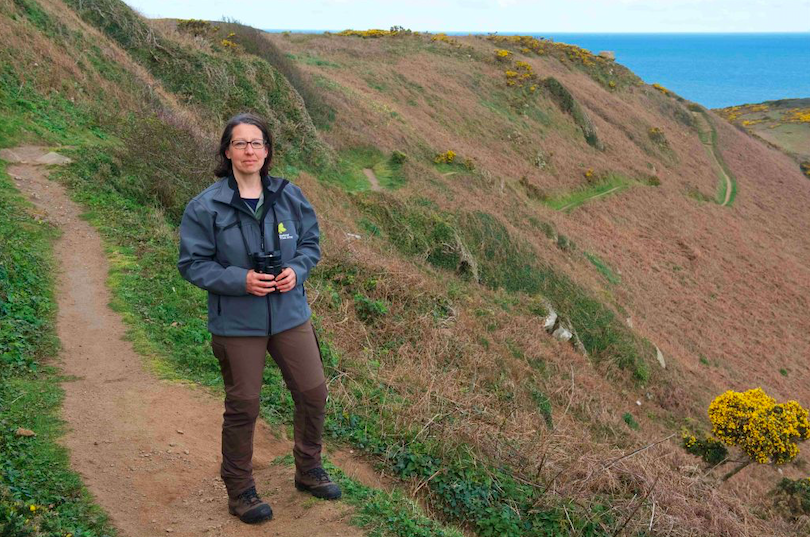


Islanders are being asked for their views on a 15-metre section of fencing at Plémont that shows what proposed measures to protect the puffin colony in the area would look like.
Birds on the Edge – a partnership between the National Trust for Jersey, Durrell Wildlife Conservation Trust and the Government’s natural environment team – want to install a predator fence 20 to 40 metres below the public footpath at Plémont to create a seabird reserve.
The fence would extend from the Plémont headland to the clay shooting range, with invasive bracken removed to allow coastal habitats to regenerate.
The group has launched a consultation on the plan, asking members of the public to look at the demonstration fence – which lies at the western end of the proposed run – to judge whether its visual impact represents a reasonable compromise to protect the puffin colony and other endangered wildlife.
The trial section will be in place for a minimum of three months, after which a planning application for the seabird reserve would be submitted.
Following surveys and scientific studies, the predator-proof fence – trialled and tested in New Zealand, Australia and the Hawaiian Islands – is considered the only feasible solution to counter predators such as rats and ferrets.

Pictured: Cris Sellarés, project officer for Birds on the Edge. (Rob Currie)
Cris Sellarés, project officer for Birds on the Edge, said the group had been tasked five years ago with establishing the causes of the decline of the puffin colony and finding solutions to stop its impending extinction.
"Our ecological research indicates that introduced rats and ferrets living at the breeding cliffs are likely to be having a significant adverse impact on both the historic and current puffin population. This would certainly explain the inability of our puffin population to increase in numbers, the decrease in our razorbills, and the recent local extinction of Jersey’s guillemots.
"We have also reasons to believe that these predators are impacting upon other native species in the area, such as green lizards, slow worms, stonechats, Dartford warblers, meadow pipits, and bank voles, amongst others," she said.
While the BOTE partnership recognises that the fence would have some visual impact upon the coastal landscape, it believes that the time has come to act to safeguard the puffins and other seabirds.
Dr Glyn Young, curator of birds at Durrell and co-founder of BOTE said: "Provision of a predator-proof fence to protect our remaining puffins and other seabirds may be the last hope we have to keep these wonderful birds in Jersey.
"Without making bold advances like this, Jersey will face the loss of large components of its natural environment and become a poorer place."
Members of the public can take part in a survey HERE and there is a project consultation page HERE.
Comments
Comments on this story express the views of the commentator only, not Bailiwick Publishing. We are unable to guarantee the accuracy of any of those comments.